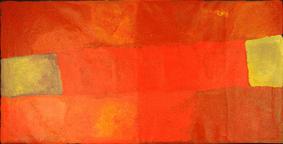
KUDDITJI KNGWARREYE - MY COUNT

Kudditji Kngwarreye
An exciting new Exhibition of exceptional paintings by tribal Elder, Kudditji Kngwarreye - Younger brother to the late, great Emily Kngwarreye.

Dry Season
“Kudditji Kngwarreye – My Country”
Like his more famous older sister, the late great Emily Kngwarreye, Kudditji Kngwarreye has a deserved reputation as an innovator and as a consummate artist. As an Ammatyerre Elder and custodian of many important “Dreamings”, Kudditji Kngwarreye has been actively painting since 1986. This was several years before his older sister took up the brush and transformed the Indigenous Fine Art Movement.
Around eighteen years ago, Kudditji became aware of the emerging Desert Art Movement which had been initiated and encouraged by teacher, Geoffrey Bardon in the nearby Papunya Community and was inspired to record his unique Dreamings and Stories of his country on the more permanent medium of acrylic on canvas. Kudditji’s first paintings reflected his traditional upbringing and utilised the very fine dots and symbols indicative of the Men’s ceremonies and Emu Dreamings from the Utopia region. His strong, traditional early work and distinctive style found immediate acceptance and recognition and was highly sought after.
Then, about ten years ago, intrigued by the possibilities of acrylic paint and the kaleidoscope of colours now available to him, Kudditji began to experiment with the synthetic polymer paint to eradicate the pointillist style altogether and to use a heavily loaded paint brush to sweep broadly across the canvas in stages, similar to the western landscape plane, these paintings were romantic images of his country, accentuating the colour and form of the landscape including the depth of the sky in the Wet season and in the reds and oranges of the shimmering summer heat. These ground-breaking paintings expressed Kudditji’s extensive knowledge and love of his country in a way never seen before.
Whilst these early, innovative and stunning paintings were admired by an astute few, the change of direction and style was not well received at the time by the main outlets for his work in Alice Springs. The market then was for more “traditional” artworks which were executed mainly in the colour palette reflecting the original natural ochre pigments. As painting was his main means of income, Kudditji decided to return to the more popular style of precise dotted paintings associated with the traditional Men’s Ceremonies.
In 2003 Kudditji triumphantly returned to explore the looser painting style that he had developed over ten years previously, which people now comment has a “family resemblance” to the last paintings of his elder sister Emily Kame Kngwarreye, but when first painted were unlike anything else within Indigenous Fine Art. Indeed some people have asked the question as to who first developed the style. Brother or Sister? The answer is not currently known, but Kudditji’s beautiful, soft and mesmerising landscapes of his country are unmistakably his and have finally found wide acceptance and acclaim via very successful solo exhibitions in the Eastern States and London.
Kudditji’s country is located in the remote Utopia region, some 230 kilometres north-east of Alice Springs. Kudditji was born circa 1928 and after a traditional Desert upbringing and initiation, Kudditji found himself drawn into the twentieth century of the western world and quickly adapted by forging a career as a highly regarded Stockman. He also spent some time working in mineral and gold mines that were then operating in the region before adopting painting as his career.
“Kudditji Kngwarreye – My Country” is a remarkable, not to be missed exhibition of exceptionally beautiful paintings by an important and highly collectable artist.
“Kudditji Kngwarreye – My Country”
opens at 6.30pm on Friday the 27th August, and runs seven days a week until 30th September, 2004.
@ Japingka Gallery, 47 High Street, Fremantle
Gallery Hours are Mon - Fri: 9.30am 5.50pm. Sat: 10.00am–5.30pm Sun: 12.am–5.00pm.
Admission is free to the public.
Opinions
There are no opinions yet. Be the first to add your wisdom!
